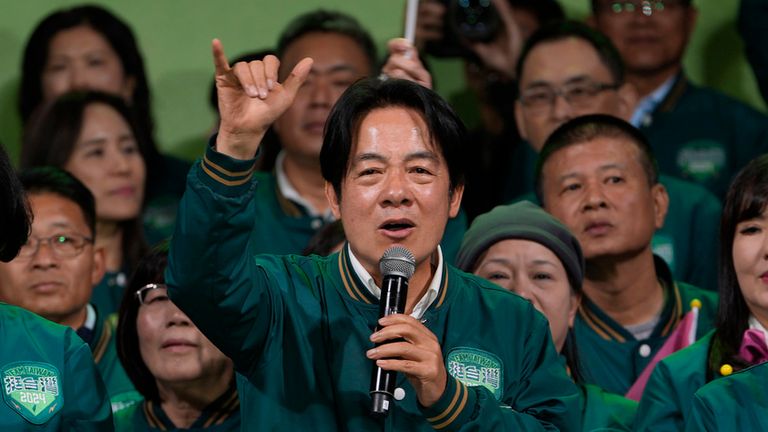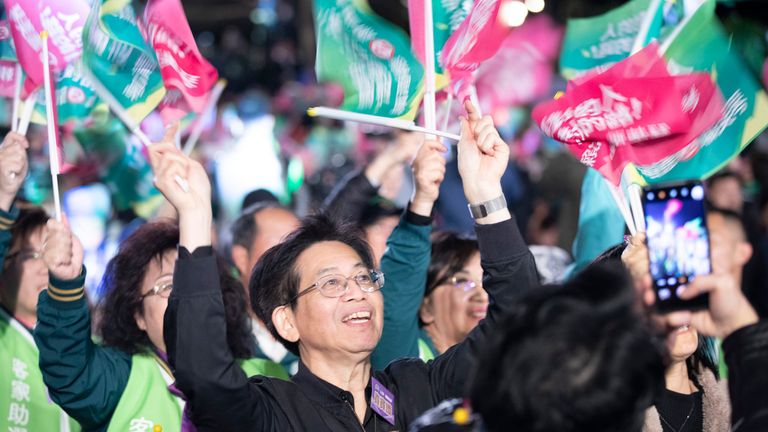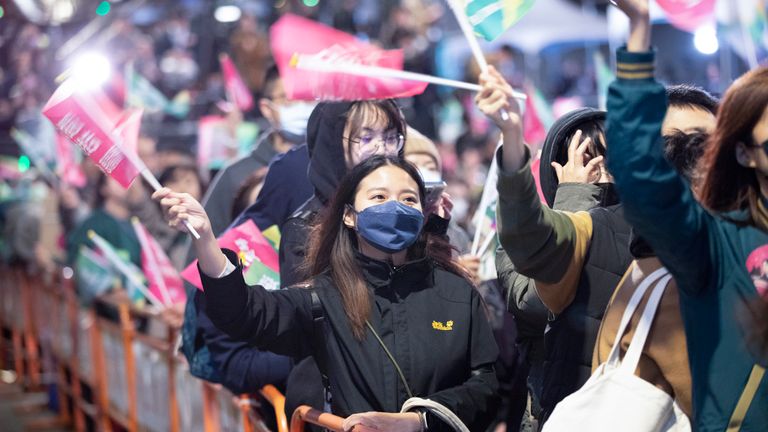The candidate of the ruling Democratic Progressive Party (DPP), which champions autonomy from China, has won Taiwan’s presidential election.
Lai Ching-te, who is the current vice president, is set to replace Tsai Ing-wen, who has served the limit of two terms.
With 95% of polling stations declaring, Mr Lai appeared to have an unassailable lead.
It is the first time a party has secured a third term under Taiwan’s current electoral system.
The election was also contested by Hou Yu-ih from the Nationalist, or Kuomintang party (KMT) , which is in favour of closer ties with China; and Ko Wen-je from the smaller Taiwan People’s Party (TPP), which has engaged less in the China question and framed its campaign around domestic issues.
The KMT and TPP have both conceded defeat, with Mr Hou having congratulated Mr Lai.
Voters cast ballots on Saturday after a campaign overshadowed by tensions with China, which claims the territory as its own.
Beijing has been ramping up military pressure on Taipei and describes the contest as a choice between war and peace.
Read more:
The election that could shake the world
A victory for Mr Lai will likely irk Beijing, as the DPP does not acknowledge the “one China principle” in which territories like Taiwan and Hong Kong are deemed part of greater China.
The DPP is in favour of maintaining the status quo, in which Taiwan is self-governed.
Speaking to reporters in the southern city of Tainan before voting, Mr Lai earlier encouraged people to cast their ballots.
“Every vote is valued, as this is Taiwan’s hard-earned democracy,” he said in brief remarks.
In the run-up to the election, China repeatedly denounced Mr Lai as a dangerous separatist and rebuffed his repeated calls for talks.
Mr Lai has made explicitly pro-independence statements in the past, which is why he is deemed troublesome by China.
Meanwhile, two Chinese balloons were detected crossing the Taiwan Strait in the previous 24 hours, according to Taiwan’s defence ministry on Saturday.
One of the objects flew over Taiwan. It was the latest in a spate of balloon sightings which the ministry has reported.
Apart from tensions with China, the election largely hinged on domestic issues, such as a slowed economy, housing affordability, a yawning gap between rich and poor, and unemployment.
This breaking news story is being updated and more details will be published shortly.
Please refresh the page for the fullest version.
You can receive Breaking News alerts on a smartphone or tablet via the Sky News App. You can also follow @SkyNews on X or subscribe to our YouTube channel to keep up with the latest news.



